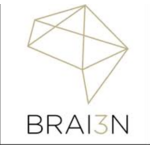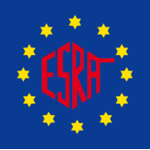Smart Medtech
Unlocking the full potential of new medical devices, tools, technologies & digital solutions for chronic migraines
Background
In response to the political priorities and recovery plan of the European Union, the Key Strategic Orientation KSO-A ‘Promoting an open strategic autonomy by leading the development of key digital, enabling and emerging technologies, sectors and value chains’ aims to accelerate and steer the digital and green transitions through human-centred technologies and innovations under Horizon Europe’s Strategic Plan 2021-2024. Technology is a key driver for innovation in the healthcare sector. It can provide better and more cost-efficient solutions with high societal impact, tailored to the specific health care needs of the individual. Emerging and disruptive technologies offer great opportunities for transforming health care, thereby promoting the health and well-being of the citizen.
“Smart” technologies (microelectronic sensor/actuator systems) provide novel functionalities to surgically-implanted active medical devices. They open up therapeutic avenues for a wide range of medical handicaps, complex chronic conditions and lesions due to their integrated diagnostic capabilities. Surgical conditions account for approximately 30% of the global burden of disease and have a huge social and economic impact. However, of the 300 million surgical interventions undertaken globally every year only around 6% occur in low-income countries, where a third of the world’s population lives. There is therefore a strong need for high-quality, affordable surgical interventions for implanting “smart” active medical devices suitable for resource-limited or -constrained clinical settings.
Key Project: TARA
Chronic migraine is defined as a headache persistent for more than 3 months or a severe headache persistent for more than 15 days within a month. It affects approximately 2% of the world population. The World Health Organization classifies severe migraine attacks as among the most disabling illnesses, comparable to dementia and quadriplegia. Treatments start with pharmaceutical drugs, which have contra-indications and severe side effects and often remain ineffective in chronic migraine patients. Injectable treatments like Botox and nerve blocks can be effective but require multiple sessions per year and also have undesirable effects. Treatments using neurostimulation products that deliver electrical pulses to the occipital nerve have been up to 80% effective but they are designed for the back not the neck which results in high rates of surgical revisions. This leaves the chronic migraine population severely underserved and in need of an innovative solution.
TARA - Disrupting the Migraine continuum of care for resource constrained settings - aims to disrupt the continuum of care and referral pathway by creating a more effective non-surgical solution that reduces cost and risk and therefore increases accessibility to more physicians and patients. The 36 month HaDEA funded project will integrate a multitude of smart technologies to create and lead the Closed Loop Bioelectronic Therapy market, including migraine. The main objective of TARA is to prove that our affordable bioelectronic solution can compete directly with the core USP’s of pharma solutions including 1). Cost, 2). Efficacy, and 3). Physician access.
Helix Ecosystem
The Smart MedTech Helix is an International Open Innovation Community of specialists and stakeholders, including those from the domains of healthcare/healthcare providers, medical profession, medical device developers, smart technology, smart medical device technologies and innovations, as well as relevant policy makers, standardisation agents and citizen/patient interest groups The Helix was initiated to support in validation and steering of the TARA project, and to accelerate translation of the TARA project results into cross-sectoral impact for the European economy and its citizens.
Key policy initiatives that may drive activity on this Helix, via European and National funding programmes and their resulting project portfolios, include:
- EU4Health
- European Health Data Space
- State of Health in the EU
- patients' rights in cross-border healthcare
- medicines and medical devices
- eHealth
Funded by the European Union. Views and opinions expressed are however those of the author(s) only and do not necessarily reflect those of the European Union or the granting authority. Neither the European Union nor the granting authority can be held responsible for them. This project has received funding from the European Union’s Horizon 2020 or Horizon Europe research and innovation programme under grant agreement No 101057524.

Funded by
the European Union
Upcoming Events
228 Experts
130 Organisations
39 Countries
TARA project - Disrupting the Migraine continuum of care for resource constrained settings














